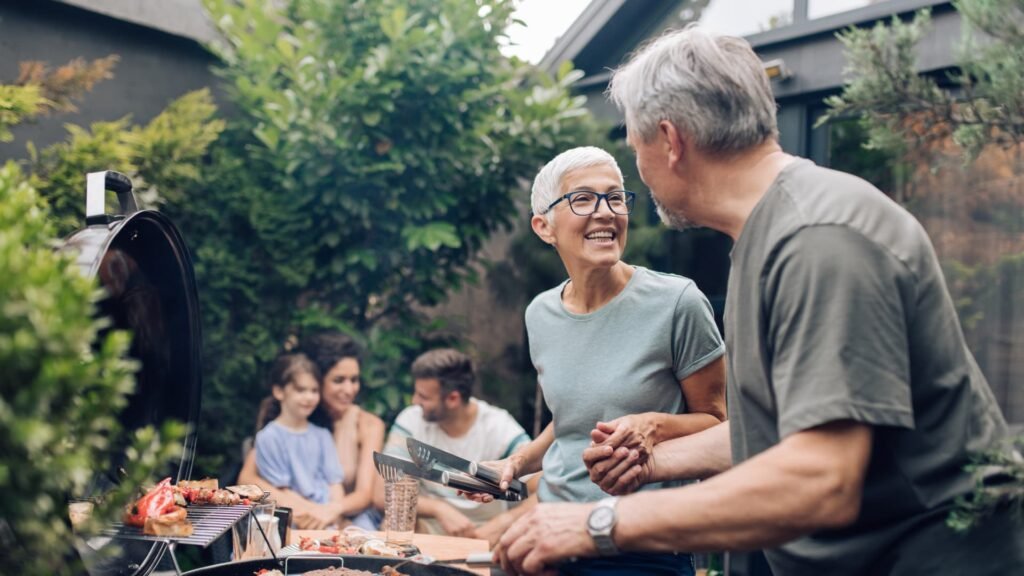Rgstudio | E+ | Getty Images
Owning a home may give some people confidence in their retirement prospects, but some experts say that may be a misconception.
According to the Your Money Retirement Survey conducted by SurveyMonkey and CNBC.com, about 37% of people surveyed, including those with part-time or full-time jobs, the self-employed, and business owners, said they are “ahead of schedule” (7%) or “on track” (30%) with their retirement savings.
Of those who say they are ahead of or on schedule, 42% say starting retirement savings early has helped them be prepared. Other factors that contributed to readiness include having little or no debt (38%) and home equity or ownership (37%), according to the report.
The survey was conducted in August among 6,657 adults, including 2,603 retirees and 4,054 working adults.
More information on personal finance:
The US economy is on a soft landing and the ‘Vibession’ is coming to an end
Election impact on taxes
How to Know If Your College Child Really Needs “Dorm Insurance”
But homeowners’ confidence in the wealth of their home’s value may be misplaced, according to Angie Chen, senior research economist and associate director of savings research at Boston University’s Center for Retirement Research.
“Homeowners are often overconfident about their retirement preparedness,” Chen says. “There are a lot of misconceptions about how to determine if you’re adequately prepared for retirement.”
Still, homeownership can have other benefits in retirement, said Winnie Sun, co-founder and managing director of Sun Group Wealth Partners in Irvine, California.
Here’s what you need to know:
“Overconfidence or not worrying enough?”

The Center for Retirement Research’s National Retirement Risk Index measures the percentage of working-age households at risk of being financially unprepared for retirement. Comparing the 2023 NRRI with individual household assessments, the CRR analysis found that 28% are “not worried enough,” meaning they don’t think they’re at risk but the index predicts they are.
“People who own their homes but still have a lot of debt are more likely to be overconfident or not worried enough,” Chen said.
To better assess your retirement preparedness, “it’s important to consider not only the value of your home, but also how much you owe and how much you still owe,” Chen said.
For example, if you buy a $500,000 home but still owe $400,000 on it, your equity is actually $100,000, she says. Leveraging that equity isn’t necessarily cheap, and borrowing against your home can be risky, experts say.
“Housing is not really liquid,” Chen says. “You might feel good about having a large amount of wealth, but you can’t spend it in retirement like you can with other types of savings.”
However, experts say homeownership does have certain advantages.
“Housing costs will be reduced.”
Whether or not you consider home equity in your retirement preparations, owning a home can provide other financial benefits in retirement.
“There are two sides to homeownership,” said Sun, a member of CNBC’s Council of Financial Advisors.
First, it allows you to build equity: When you sell the property — say, to downsize after retirement — you have access to a lump sum of money, Sun explained.
Additionally, “housing costs can be managed” while owning the property, which may include certain mortgage payments, Sun said.
The costs of homeownership, such as home insurance and property taxes, have increased in recent years, but by the time you retire, you may be hit with senior pricing for utilities, Sun said.

“Many of my clients, as they get older, also qualify for senior rates on their utility bills,” Sun said, “so some of their costs can go down as they get older.”
Experts say that while homes are illiquid, it may be possible to tap into home equity if needed.
“Most retirees think of stocks as a sort of emergency fund,” Sun says.



